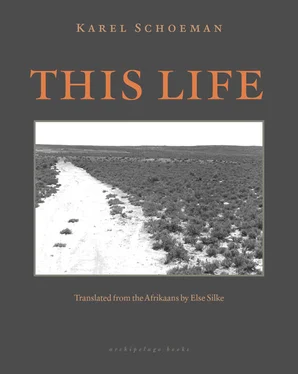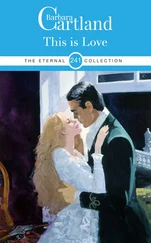What does it matter? Let the girl sleep on the cot at the foot of the bed: she is young and her life lies ahead of her. Why should she wake and get up? There is nothing more she can do for me.
What did I expect when I kept listening for the cock’s crow, peering through the dark to try and make out the first grey light of dawn; what could the morning bring that the night had not already given me? I have remembered what I had forgotten, I have articulated what I did not want to know, and my mission has been accomplished; I am tired now, and I want to rest, undisturbed by anyone, or by the day with its bustle and noise. The pattern has been laid down and the slivers and fragments joined together, my task fulfilled, and it is not for me to judge whether it has been done well or poorly. Only one more thing, seeing that I have gone so far and said so much; only one more thing, even though I do not understand why, and then it will be enough.
During these last years after the war, when I had detached myself from all the affairs of the district, people began to look me up in my isolation on the farm, just as they had done in the old days when there had been few educated people in our parts and they had come to ask me to read or write their letters. Again it was the simple people who came to me, poor people and bywoners, and when I was not at home when they arrived, they simply sat in their carts in the shade of the wall, waiting for me to return; sometimes there were coloured people in a cart drawn by mules who had come a long way from the Riet River district or the Nuweveld because they seemed to have heard of me. Timidly these visitors described their ailments to me, and I discovered that they credited me with a special knowledge of plants and herbs, for this was how people in the district explained my solitariness and my long rambles in the veld, and in their simplicity they interpreted my loneliness and isolation as signs of wisdom and power: humbly they revealed their sores, their ulcers, their swellings to me, and then looked at me expectantly, confident that I could cure them. There was nothing I could do for them, however, for, faced by their suffering, I was as helpless as they and I felt ashamed by the trust they put in me so undeservedly: I could only mutter an apology, suggest a few remedies that I happened to know of and give them some balm or solution from the medicine chest, and shamefacedly watch the rickety cart struggle down the road again, its passengers returning home with their pain and their sorrow. Perhaps there was no one else to listen or help and they appreciated my care and attention, but over the years they kept coming, for they truly believed I knew how to alleviate their pain; and how annoyed Stienie was when these ramshackle vehicles came struggling across the yard when she was at home, and how scathingly she denounced these visitors, though never in my presence. What could I do, however, caught between her disapproval and their groundless faith and only too painfully aware of my own inadequacy? These sufferers were the only people who still needed me, no matter how unfounded their faith in my abilities, and their infrequent visits the only connection that still tied me to the world.
One day while Maans and Stienie were away in Cape Town, a rickety old wagon came to a halt some distance from the house. I was sitting at the dining-room window, for I had been feeling tired all day, so I did not go out to see what they wanted, though I heard a man speak to the servants at the kitchen door. They have come for advice, as always, I thought, but actually it was not the case, and the maid came to tell me that there was a white man asking whether he might stand on our ground for a while and let his sheep graze. I sat with him in the kitchen while he drank the coffee he had been served, for lately Stienie did not want these people in her voorhuis any more, and even in the kitchen they were not really welcome. He was a youngish man, though he looked old and tired in his dusty clothes and worn shoes, and while we were sitting there, he spoke politely yet indifferently of the long road he had travelled, from beyond Sak River and Riet River and down through the Nuweveld. I showed him where he might stand, and as he was taking his leave on the threshhold of the kitchen, he remarked almost in passing that his wife lay ill in the wagon, not as if he wanted or expected any help from me, but as if merely recounting another of the many woes of his itinerant existence that he had been listing for me while drinking his coffee.
It was not often that a white man trekked around to find pasture for his sheep any more, dependent on the hospitality and the mercy of others, neither were these ramshackle old wagons as common as during my childhood. As I sat at the window, I could not help thinking of the past and of many long-forgotten memories, Oom Ruben with his barefoot children and Jan Baster’s meagre trek on its way to Groot River. I wanted to lie down and rest for a while, but after the arrival of the stranger I was uneasy, and the old memories stirred up so many feelings inside me that I could not find any rest. At last I took the medicine chest and went across to the wagon.
The man was alone except for his herdsman, and there was no one to help. His wagon was old and rickety, the canvas worn and torn, and it shook unsteadily when I climbed in; the woman lay on a bed of skin-blankets that had been made for her on the cot, and was not even aware of my arrival. I searched among the remedies I knew, but she took no notice of me; the man thanked me almost submissively for my help, as if he had not been expecting it and was unused to such solicitude, but he seemed to know that no medicine would be of any help. There was nothing more for me to do, so I left them alone. I sent them a little food from the house; but later that evening I took the lantern and walked across again.
The herdsman had already fallen asleep at the remains of his fire, and inside the wagon the man sat at his wife’s bedside by the light of a candle-stub that had been fixed on a chest. He sat motionless, his shoulders sagging, and he did not look up at my arrival or move aside as I bent over her. I looked at her in the uncertain light and knew there was nothing more I could do for her, and so I sat down on the camp-stool at the foot of the cot to keep vigil with the stranger. Why did I do it? I might just as well have gone back home, for he had as little need of my presence as his wife. In the flickering light of the tallow candle I surveyed the scant belongings in the wagon — the chipped basin, the cracked cup, the knife — and this tired, defeated man and the dying woman in the bed. How old could she have been? It was impossible to say, for years of poverty and suffering on the road had left deep lines on her face, but her hair was still dark where it fell across her damp forehead and it was even possible to believe she had once been pretty — who could know? I got up and bent to wipe the sweat from her brow, for the man made no move and did not attempt to do anything; when she moved her hand feverishly and uncertainly over the blanket, the fingers searching, he did not even notice, and it was I who leaned forward to grasp it, and that was how she died, with her hand in mine.
We sat like that for a while, without moving, until the flickering candle threatened to go out, for I did not want to disturb this rare moment of insight with any ill-timed word or movement. Sofie had died like this, I knew as I sat with the dead woman’s hand in mine, or in a similar way, somewhere in a wagon or a tent, in a shelter or an outside room, in the desolation of the Great Karoo, Bushmanland or Namaqualand or in the region across the Groot River, in similar isolation, in similar poverty, in similar despair, and it was from a wordless deathbed like this one that Pieter had at last been brought back to us. For fifty or sixty years I had wondered and had carried my uncertainty and unasked questions around inside me, and now the questions had been answered and the circle completed: in a final gesture of tenderness and reconciliation I could reach out across all the years and touch her brow, could reach out and hold her hand while she was dying, and bid her farewell. Now the inscription in the family Bible could at last be made and the date chiselled in the stone.
Читать дальше












